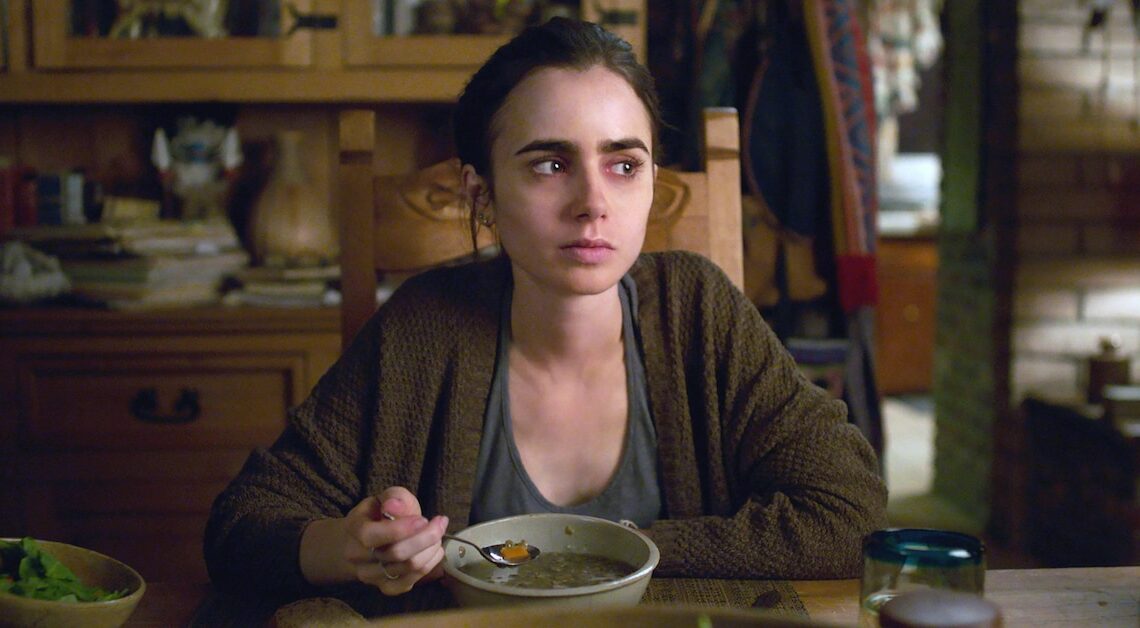
Films about eating disorders offer in-depth insights into the psychological struggles of those affected and raise awareness of this important topic.
“To the Bone” (2017): A Netflix film about eating disorders
The American film drama tells the story of Ellen (Lily Collins), a 20-year-old woman who struggles with severe anorexia
- After several failed attempts at therapy, Ellen enters a group home in Los Angeles run by Dr. William Beckham (Keanu Reeves) is directed. Dr. Beckham pursues unconventional treatment methods and tries to help patients by asking them whether life is worth living.
- “To the Bone” addresses not only Ellen’s personal tragedy, but also the influence of societal norms and family dynamics on eating disorders: Ellen’s family is unsupportive; her mother has withdrawn from responsibility while her father is immersed in work.
- What makes the film so special is the personal connection between filmmaker Marti Noxon and leading actress Lily Collins to the subject matter; Both have had personal experiences with eating disorders.
- The film's reception was mixed. While the audience largely appreciated the honest portrayal of the struggles of people with eating disorders, critics feared that it trivialized eating disorders and could have the potential to be imitated by vulnerable viewers.
„Swallow“ (2019)
Carlo Mirabella-Davis' drama addresses, among other things, eating disorders, self-perception and eating behavior.
- The main character in “Swallow,” Hunter (Haley Bennett), comes from humble beginnings and marries a wealthy man. Despite her material wealth, she feels isolated in her new role and pressured to live up to the expectations of her family-in-law.
- This inner emptiness causes her to develop a dangerous eating disorder where she begins consuming inedible items such as batteries and nails, which is known as pica syndrome.
- The depiction of Hunter's illness is both visually and emotionally intense. The close-ups of food and the objects Hunter consumes illustrate the connection between her emotional state and her eating behavior.
- Critics praised the profound character study and Haley Bennett's acting performance. The sharpness and seriousness of the film were also clearly highlighted.
“Don’t worry, I’m fine” (2006)
In this French drama, Lili returns home after an argument with her father and falls into a downward spiral of anorexia.
- Lili learns that her twin brother Loic has disappeared after an argument with their parents. In her deep despair and fear for her brother, she develops an eating disorder that leads her to a psychiatric clinic.
- During her search for Loic, she discovers painful family secrets and ultimately has to confront the truth about his death.
- The film poignantly presents the complex emotional and psychological effects of loss and eating disorders. Lili's struggle is compounded by her relationship with her brother and the pressure her family puts on her.
- Critics praised the acting performance of Mélanie Laurent, who embodies Lili with great intensity.
- “Don't Worry, I'm Fine” was described as upsetting and thoughtful, with some critics noting that the first half was more exciting than the second.
“Girl, Interrupted” (1999)
The psychological drama is based on the memoirs of Susanna Kaysen. The story takes place in the 1960s and follows young Susanna, who is admitted to McLean Psychiatric Hospital after a failed suicide attempt.
- At the clinic, Susanna (Winona Ryder) is confronted with various fellow patients, including Daisy (Brittany Murphy), who suffers from an eating disorder.
- Daisy never eats with the others and has a very isolated relationship with food. She hides food and chooses to be alone when she eats to avoid going to the bathroom, which for her is associated with shame and fear.
- Daisy's interactions with Susanna demonstrate the challenges and pressures that come with such illnesses. Lisa (Angelina Jolie), another patient, provokes Daisy and plays a manipulative role in her life, highlighting the complexity of the relationships between the godmothers.
- “Crazy” is a multi-layered film that addresses the reality of eating disorders as part of a broader discussion about mental health and identity.
- Some critics complained that Daisy's character and her eating disorder were not treated in sufficient depth. It has been argued that the portrayal focuses too much on the spectacular without fully illuminating the underlying causes and complexity of eating disorders.
